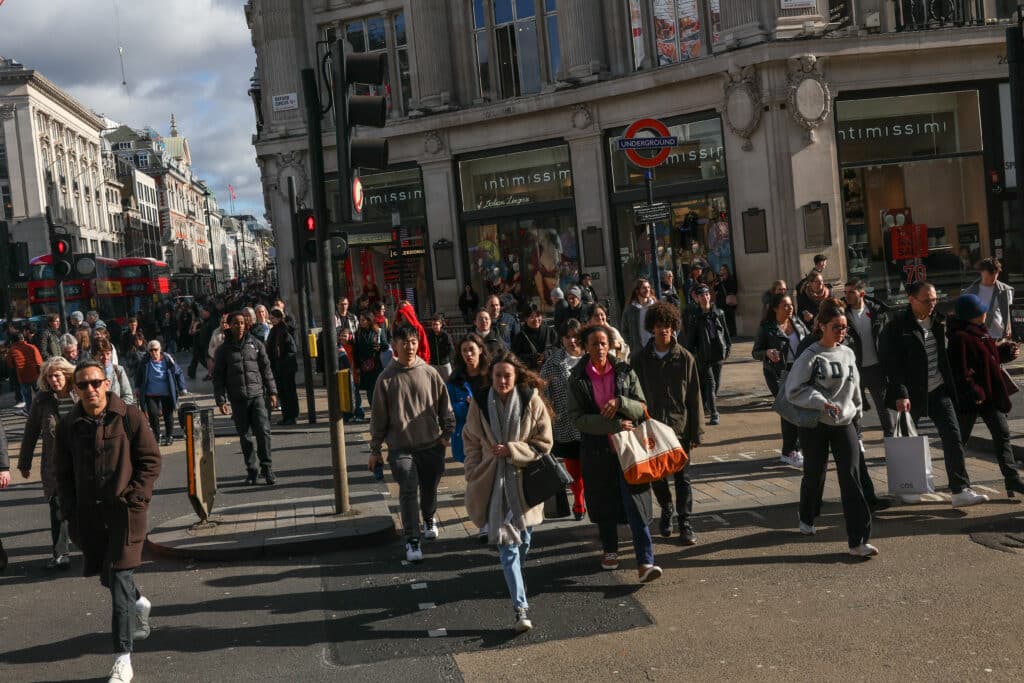
Pedestrians walk in the winter sunshine down Oxford Street in central London on February 16, 2024. Britain is in recession, official data showed Thursday, dealing another blow to embattled Prime Minister Rishi Sunak, whose Conservative party is forecast to lose a general election expected this year. (Photo by Daniel LEAL / AFP)
London, United Kingdom — Britain’s unemployment rate has unexpectedly dropped to 4.2 percent and wage growth has slowed to the lowest level in nearly two years, official data showed Tuesday.
The unemployment rate for the second quarter compared with 4.4 percent in the three months to the end of May, the Office for National Statistics (ONS) said in a statement.
Analyst consensus had been for a small rise in the rate.
READ: UK unemployment rises as wage growth eases
The ONS added that wages growth, excluding bonuses, slowed to 5.4 percent from 5.8 percent over the same reporting period. That was the lowest level since August 2022.
“The number of job vacancies continues to decline, although the total number remains above pre-pandemic levels,” added ONS director of economic statistics Liz McKeown.
A busy week for British economic data sees the release Wednesday of inflation numbers, ahead of second-quarter growth figures Thursday.
Together, the data could provide clues regarding the pace of future interest-rate cuts from the Bank of England.
READ: UK unemployment rate much lower than thought in late 2023
“The further easing in wage growth will be welcomed by the Bank of England as a sign that labour market conditions are continuing to cool,” noted Ruth Gregory, deputy chief UK economist at research group Capital Economics.
“This lends some support to our forecast that the Bank of England will press ahead with two more 25 basis-point interest rate cuts later this year.”
The BoE earlier this month cut borrowing costs for the first time since the onset of the Covid pandemic in early 2020.
This after UK inflation has fallen sharply from four-decade highs.

